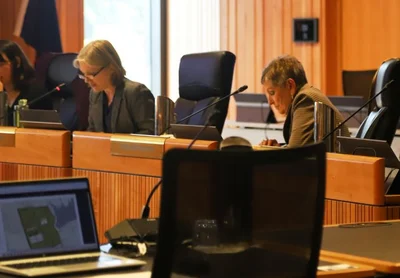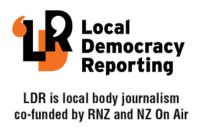Stricter conditions under consideration for proposed equine centre

A proposed $200m equine stud and equestrian training centre at Lake Hood in Canterbury looks poised to get the green light - with several conditions.
Southern Parallel Equine Centre Limited (SPEC) faced a hearing with independent commissioner Graham Taylor this week in a bid to gain consent for the project from the Ashburton District Council.
Submitters raised concerns about future development of the site, and the impacts of its activities on neighbouring properties.
At the end of the hearing, discussion focused on what conditions to impose on the consent, suggesting it was likely to get approved.
The development has already received consent approval from Environment Canterbury.
The applicants presented an updated list of consent conditions and submitters made some suggested amendments of their own for Taylor to consider.
Some conditions relating to traffic, odour, and noise will likely be reviewable.
In a submission against the proposal, John Skevington and Jo Ruane wanted stricter and clearer conditions imposed.
In their submission, the pair detailed how they had been in a land deal with the developers that had fallen through. They had concerns about the new proposal impacting their subdivision and other properties at Lake Hood.
Their submissions also raised concerns about the future redevelopment of the site by the applicant.
However, commissioner Taylor said any potential future development was “irrelevant to the application”.
Tim Read presented his family's submission raising concerns about the use of productive farmland and rural amenity value as the proposal “reads like an A&P show”.
He wanted conditions to be robust to clearly identify and define what could happen on the site.
Project director Catherine Stuart compared the plans to establishing something like Karaka, the home of the annual racehorse yearling sales, but for sport horses.
Stuart said only a small number of staff would be accommodated on-site.
“It’s an equine stud. Not a caravan park.”
The development is for the breeding and training of horses for sale - not a public access equestrian centre.
The plans are for between 20-40 staff to be on site, with up to eight living on-site, and around 100 horses in residence.
Other visitors will be by appointment only.
The proposal is for 25 event days allowed each year to cater for an annual sale event – with around 500 prospective buyers and up to 600 horses present, smaller sales events, and competition training days.
The management and removal of manure was also a focal point, with plans to remove it from the site daily.
A notable factor was the developer's plan to fully fund the connecting of the property to the town water supply and wastewater network.
Skevington questioned how a farming operation qualified for connection, something Taylor said was between the applicant and the council.
In its evidence, SPEC stated the water would not be for irrigation, as the site has access to existing consents used to irrigate, but will remove the pivot irrigation which is not suitable for horses.
ECan has consented to the use of a BioGill wastewater treatment system – which has three phases of treatment before passing through an ultra violet light system on its way to storage tanks where it is then pumped into drip irrigation.
Taylor adjourned the hearing to allow the applicants to prepare a right of reply before he could close it. He would then have 20 working days to make a decision.
By Jonathan Leask

